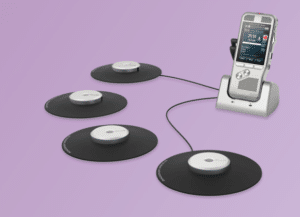Meeting, Discussion, and Arbitration Recording.

We have accumulated extensive experience in recording court discussions, arbitration in law firms, board meetings, seminars, and conferences. Our recording teams are experienced in making these types of recordings, and are highly skilled in operating professional audio recording equipment.
Our recording crews will arrive about half an hour before the meeting/discussion/arbitration is to take place in order to set up the microphones and recording devices in place and to make sure that all works as intended. In every recording, the recording technician will also operate a secondary recording device in addition to the primary device as an additional backup measure.
FAQ.
The recording must be started right before the meeting. Additionally:
- Announce the date, time, and location of the meeting (This can be done before entering the meeting itself).
- It is important to identify your name at the beginning of the recording and to describe the purpose of the meeting.
- Make sure to refer to those present in the conversation by their names so the transcribers can later identify the speakers.
- When you arrive at a meeting you wish to record, make sure to announce it in the recording.
- When you finish the meeting, be sure to declare that the meeting has ended and that you are stopping the recording.
- The same is true for recorded phone calls. The recording should be started from the dial tone and then maintained until the call is disconnected.
The law states that a “wiretap” is “listening without the consent of any of the conversation participants.” In other words, a recorded conversation that the evidence submitter, or anyone on their behalf, is not present in is illegal. The maximum possible penalty for “wiretapping” is five years in prison.
Once you are a participant in the conversation, the law allows you to record any person present, even without their knowledge. However, it is still not allowed to record discreetly in court or anywhere else that has a sign that prohibits recording.
You are not allowed to record a third party without being present at the scene.
So in order to prove your actual presence, simply speak up and be active.
You should ideally speak and be heard at the beginning, middle, and end of the recording.
Our commitment is to meet the shortest times possible. We will transcribe a meeting up to three hours long within two business days.